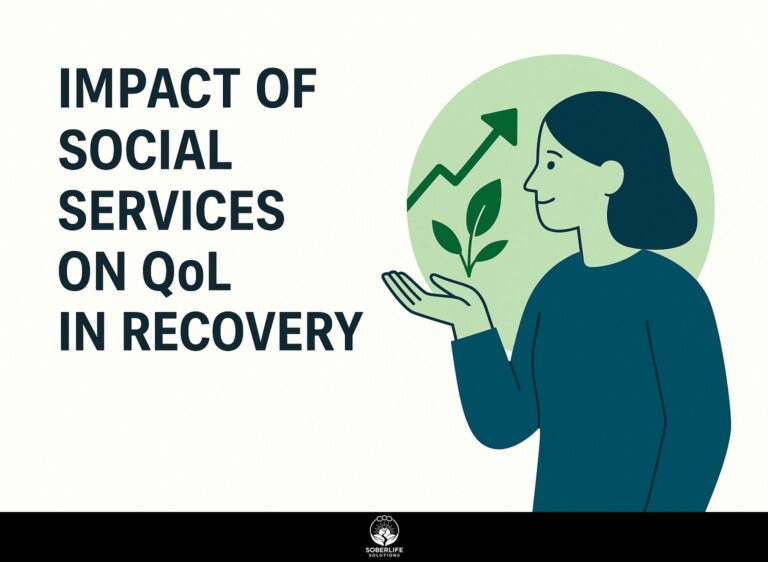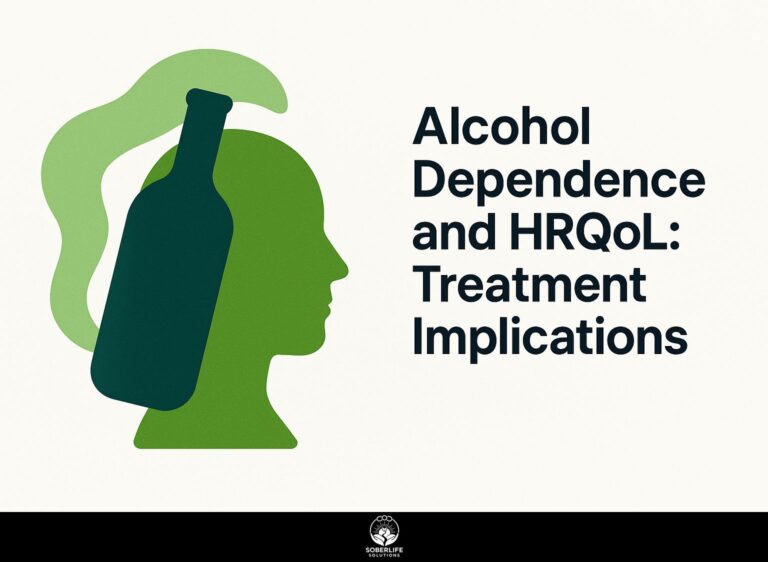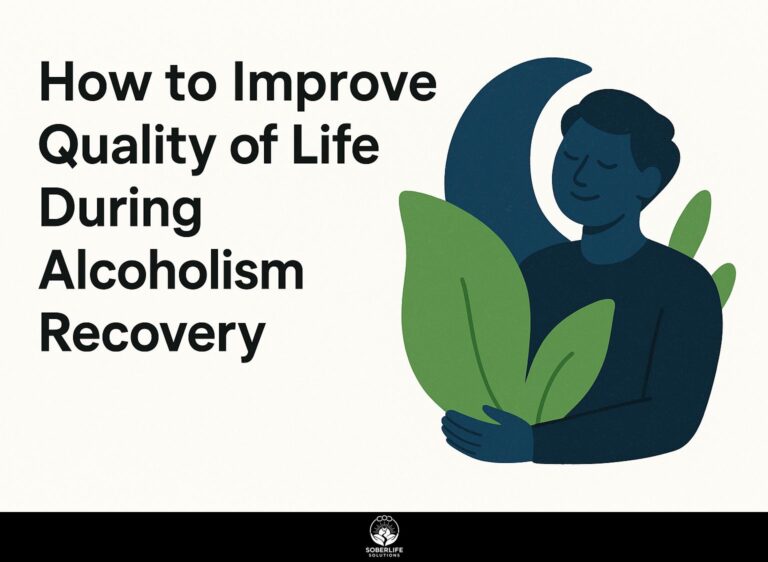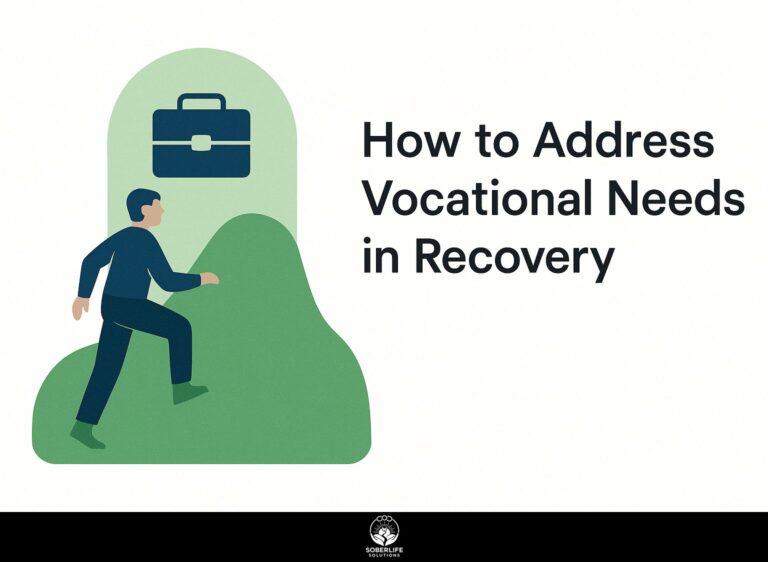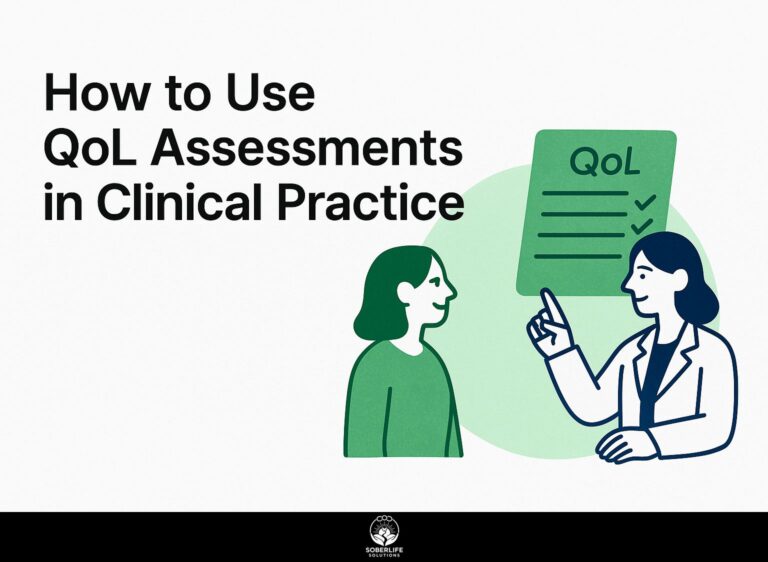How to Address Anxiety and Wellbeing in AUD Recovery
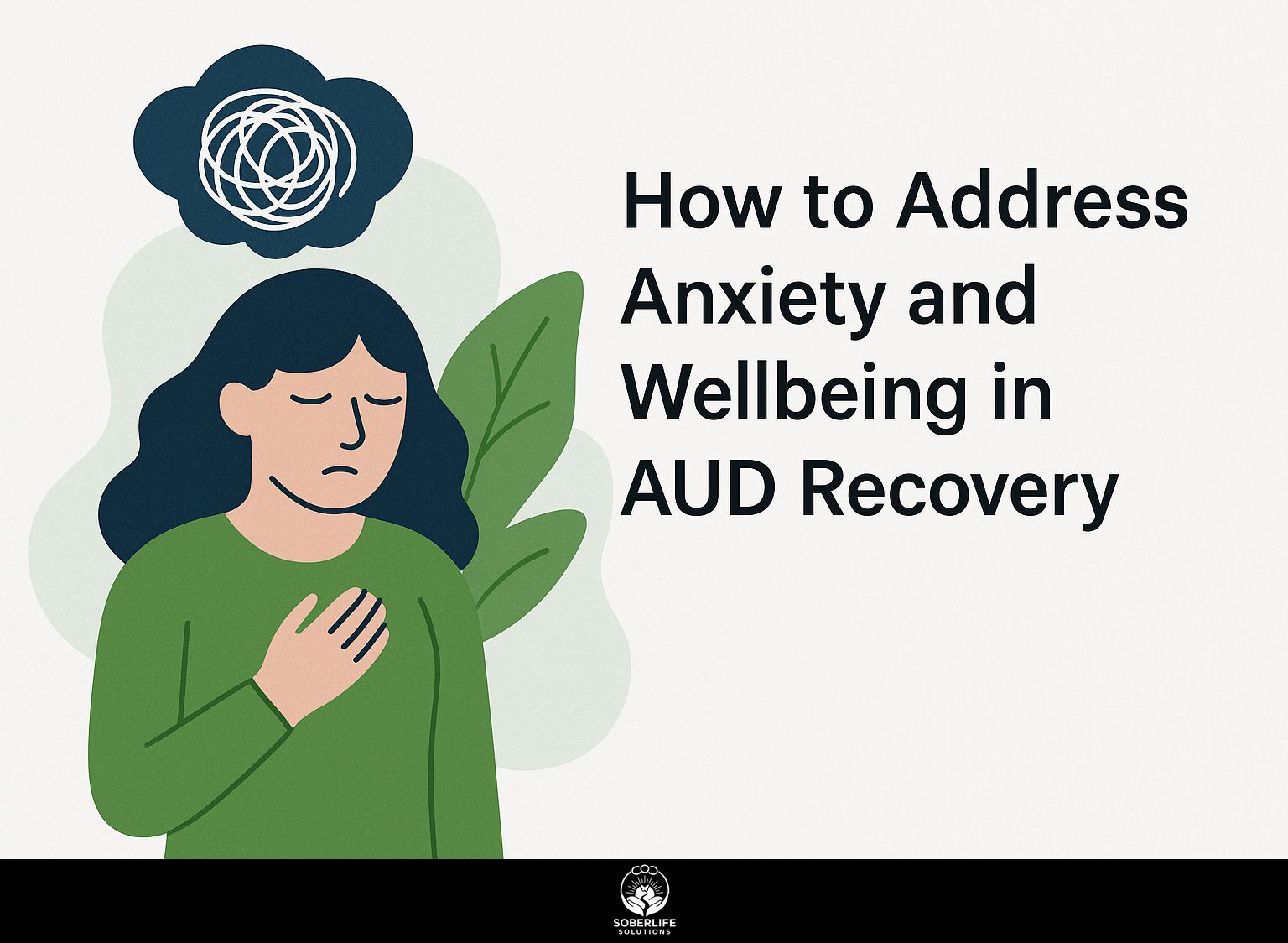
Getting better from alcohol use disorder (AUD) can be challenging, particularly when anxiety starts to appear. Knowing the connection between anxiety and alcohol is important for proper treatment. This article discusses ways to handle mental health problems during recovery, providing practical tips and advice from Alcoholics Anonymous and professional resources. Learn how to control anxiety, create a supportive group, and develop healthy ways to cope for lasting well-being.
Key Takeaways:
Alcohol Use Disorder (AUD) and Its Effects on Mental Health
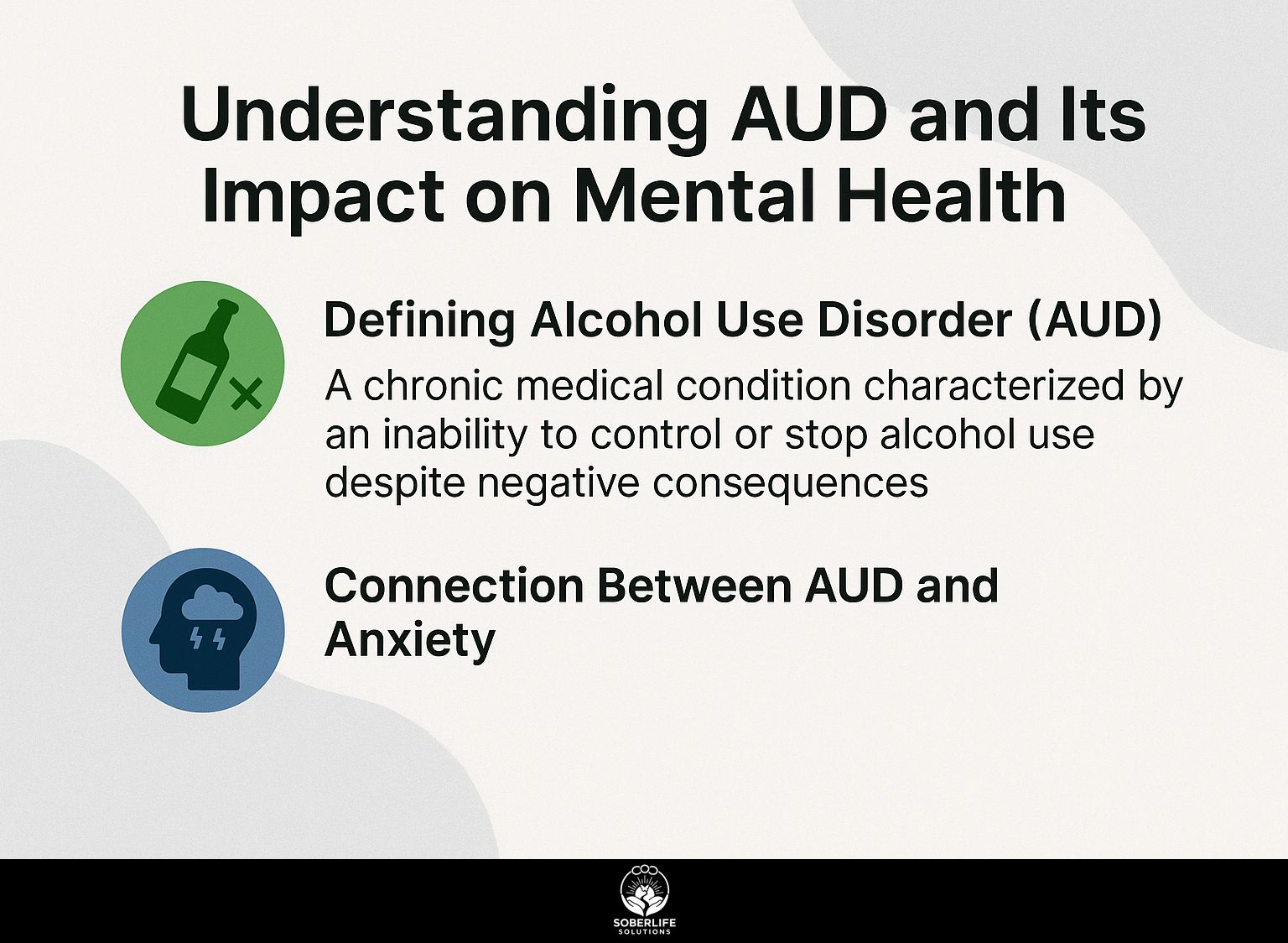
Alcohol Use Disorder (AUD) greatly impacts mental health and is connected to different psychological issues, like anxiety, which makes treatment more difficult. Some leading researchers, such as those published in Frontiers in Psychiatry, have explored the complex psychological dimensions involved in AUD, highlighting the intricate interplay between alcohol use and mental health challenges. As anxiety and stress are significant factors in alcoholism, a focus on reducing these symptoms in treatment is crucial for comprehensive recovery strategies.
Defining Alcohol Use Disorder (AUD)
Alcohol Use Disorder is characterized by a problematic pattern of alcohol use leading to significant impairment or distress, as defined by the DSM-5 criteria.
Diagnosis requires at least 2 out of 11 symptoms, which may include a strong desire for alcohol, not meeting important responsibilities, and ongoing use despite continuous social or relationship issues.
For instance, one individual might neglect work responsibilities, while another might experience relationship conflicts due to excessive drinking.
The presence of withdrawal symptoms, like anxiety or sweating when not drinking, further highlights the disorder. Doctors evaluate these behaviors over a year to make a complete diagnosis.
Connection Between AUD and Anxiety
Research shows that nearly 50% of individuals with AUD also experience anxiety disorders, often using alcohol as a form of self-medication.
This relationship can be detrimental; anxiety symptoms may intensify alcohol cravings, leading to a cycle of increased consumption. A Mayo Clinic study found that 30% of patients looking for treatment for Alcohol Use Disorder reported high anxiety levels.
Grasping this interaction is key for effective treatment. Patients might benefit from integrated therapies, such as cognitive-behavioral therapy (CBT), which targets both anxiety and alcohol misuse. For a deeper understanding of these comorbid conditions, a study from Frontiers in Psychiatry offers valuable insights into treatment strategies.
Mixing support groups with professional counseling can improve coping skills and encourage lasting recovery.
Recognizing Symptoms of Anxiety
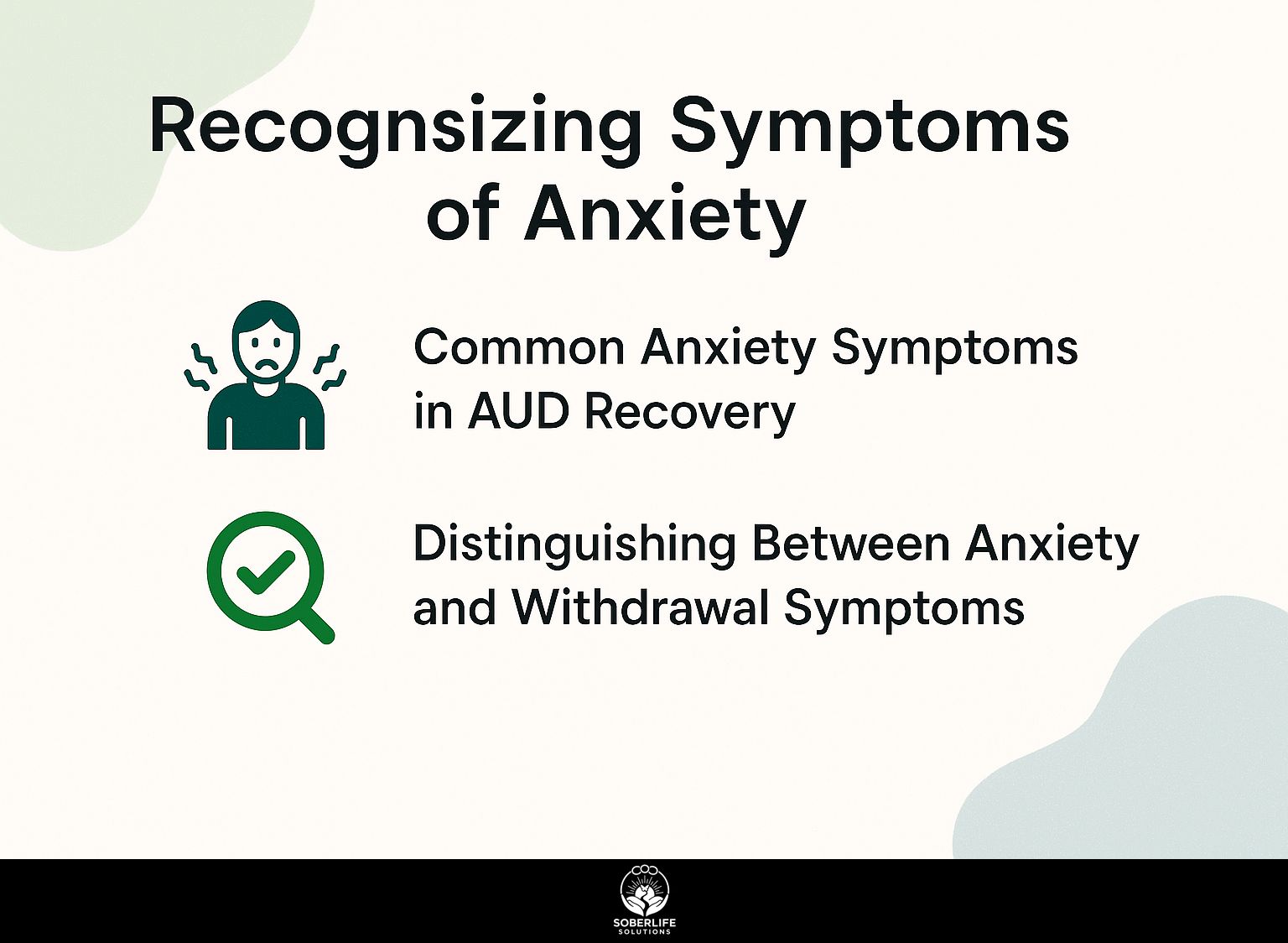
Knowing the symptoms of anxiety is important for managing and treating anxiety during alcohol use disorder recovery. Understanding how to reduce stress and anxiety in alcoholism treatment can significantly enhance recovery outcomes.
Common Anxiety Symptoms in AUD Recovery
Common anxiety symptoms during AUD recovery include ongoing worry, nervousness, and panic attacks, which can make recovery difficult for many people.
These symptoms can significantly impede progress, leading to feelings of isolation and frustration. Creating a support system is important; try joining local or online support groups.
Techniques such as mindfulness meditation or cognitive-behavioral therapy (CBT) can also be beneficial. Apps like Headspace or Calm provide guided meditations to help manage anxiety daily, while resources like the Anxiety and Depression Association of America offer tools for coping strategies.
Recognizing symptoms early helps create a lasting recovery and better mental health.
Distinguishing Between Anxiety and Withdrawal Symptoms
It’s essential to differentiate between anxiety symptoms and withdrawal symptoms, as both can manifest similarly but require different management strategies.
For effective diagnosis, consider these common symptoms:
- Anxiety Symptoms: Excessive worry, restlessness, fatigue, difficulty concentrating, and sleep disturbances.
- Withdrawal Symptoms: Mood changes, irritability, physical discomfort, trouble sleeping, and alterations in appetite.
Correct diagnosis significantly affects treatment. For instance, anxiety might be treated with therapy or SSRIs, while withdrawal symptoms may require gradual tapering of medication or supportive care.
Knowing these details helps individuals get specific treatments, which improves their recovery.
Strategies for Managing Anxiety
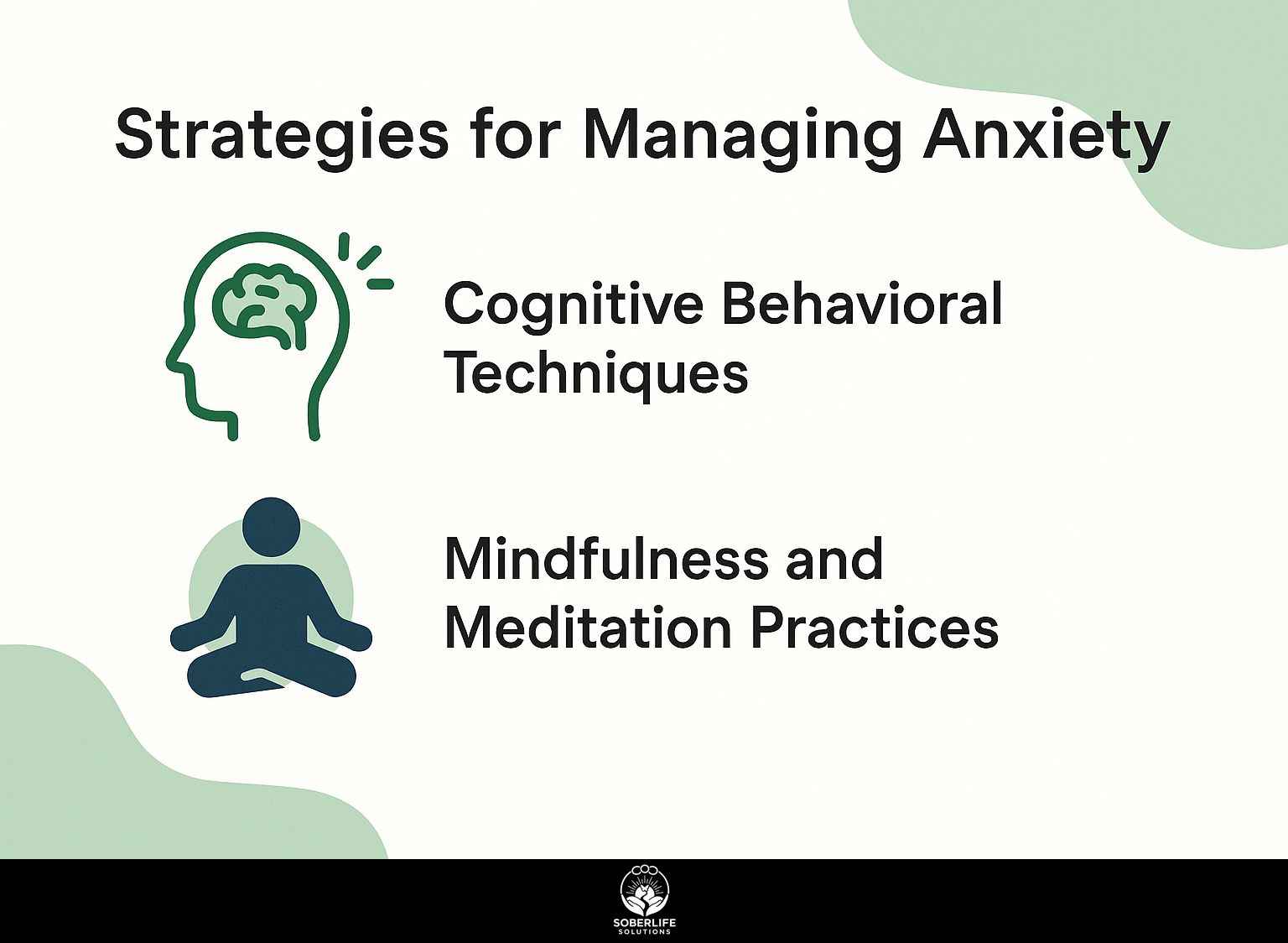
Using effective methods to handle anxiety is important for people recovering from AUD, as they help both mental health and staying sober. As mentioned, in our detailed analysis on reducing stress and anxiety in alcoholism treatment, integrating stress-reduction techniques can significantly aid in the recovery journey.
Cognitive Behavioral Techniques
Cognitive Behavioral Therapy (CBT) techniques can reduce anxiety symptoms by changing negative thought patterns, with a focus on practical exercises.
Effective CBT techniques include:
- thought records
- exposure exercises
- behavioral activation
To start using thought records, write down your negative thoughts, the context in which they arise, and challenge these thoughts with evidence.
For exposure exercises, gradually face your fears by creating a hierarchy of situations and tackling them step by step.
Behavioral activation encourages engaging in enjoyable activities to counteract low mood-schedule time for these activities each week.
For personal advice, try looking at websites like Psychology Today to locate therapists who focus on CBT in your area.
Mindfulness and Meditation Practices
Mindfulness and meditation practices can significantly reduce anxiety levels, promoting a calmer mental state during recovery from AUD.
-
A useful technique to try is deep breathing: inhale slowly for four seconds, hold your breath for four seconds, and then exhale for four seconds.
-
Body scans can help individuals become more aware of physical sensations and tension, simply by mentally scanning from head to toe.
-
The free Headspace app provides guided programs suitable for beginners.
Research published by JAMA Psychiatry indicates that these methods can lower anxiety levels by up to 40%, aiding those in recovery.
Engaging in these techniques for just ten minutes daily can lead to substantial mental health improvements.
Building a Support System
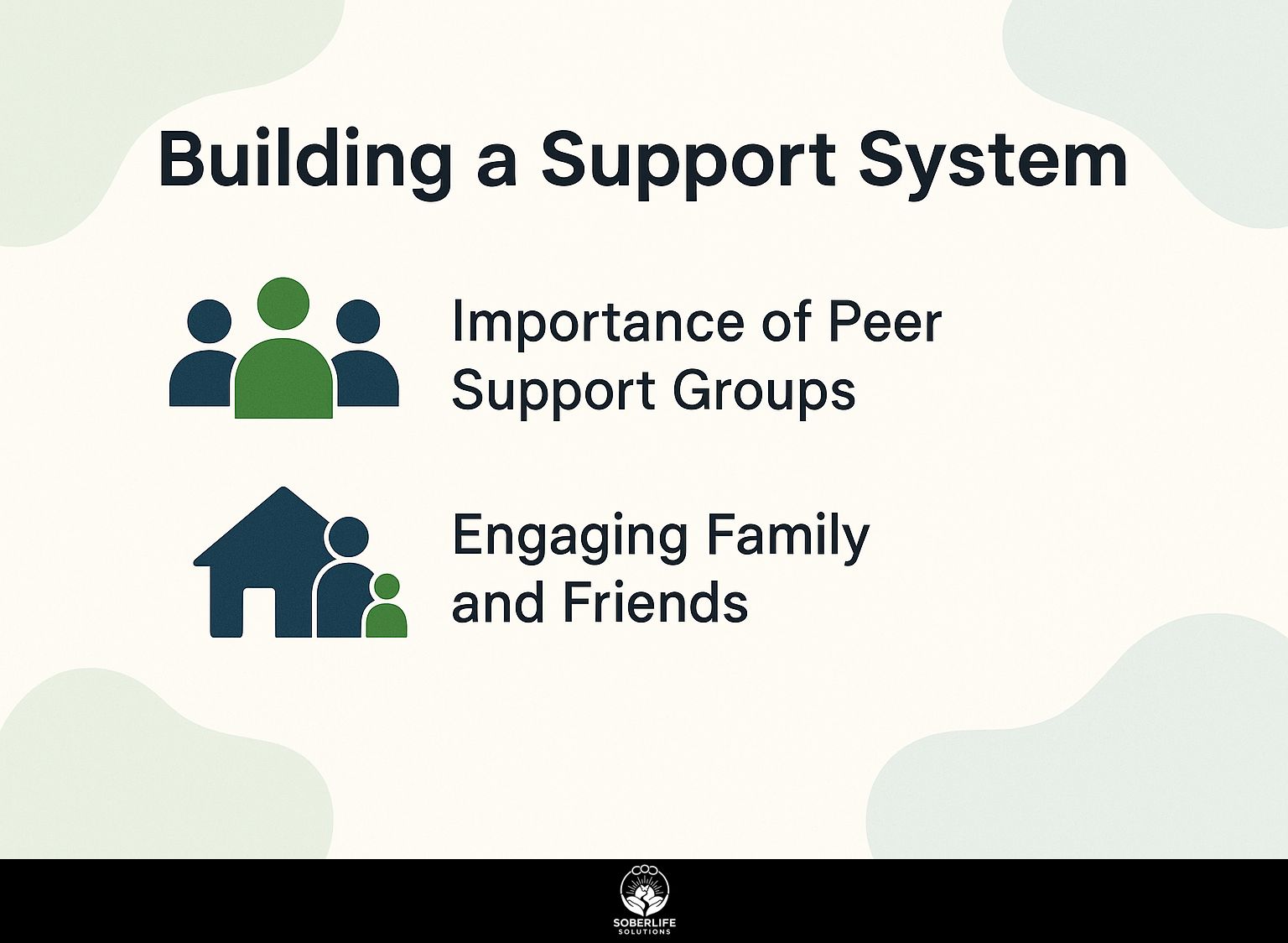
Having a reliable network is essential for people recovering from AUD. It gives them emotional support, practical help, and psychological care. Related insight: Building an Accountability Network discusses how to create a strong support system that can be crucial during recovery.
Importance of Peer Support Groups
Groups such as Alcoholics Anonymous (AA) and SMART Recovery provide a place where people can talk about their experiences and help each other.
These groups typically follow structured meeting formats, including sharing personal stories, discussing coping strategies, and engaging in guided activities.
For example, AA uses a 12-step program that highlights personal responsibility and help from other group members. SMART Recovery focuses on personal management by applying cognitive-behavioral techniques.
Research indicates that attending consistently can improve recovery outcomes by up to 50%.
Resources may include literature, online forums, and local chapter meetings, providing diverse avenues for support and connection.
Engaging Family and Friends
Including family and friends in recovery can improve emotional health and build a helpful environment for people dealing with AUD.
To effectively engage family members, start by educating them about Alcohol Use Disorder (AUD), including its symptoms and impacts.
Consider organizing a family meeting to discuss recovery goals and establish open lines of communication.
Encourage supportive techniques, such as active listening and expressing empathy, while avoiding enabling behaviors like offering substances or minimizing the problem.
Tools like family therapy or support groups can also help, providing structured environments for dialogue.
When families build trust and communicate well, they can encourage positive actions and support recovery.
Professional Help and Resources
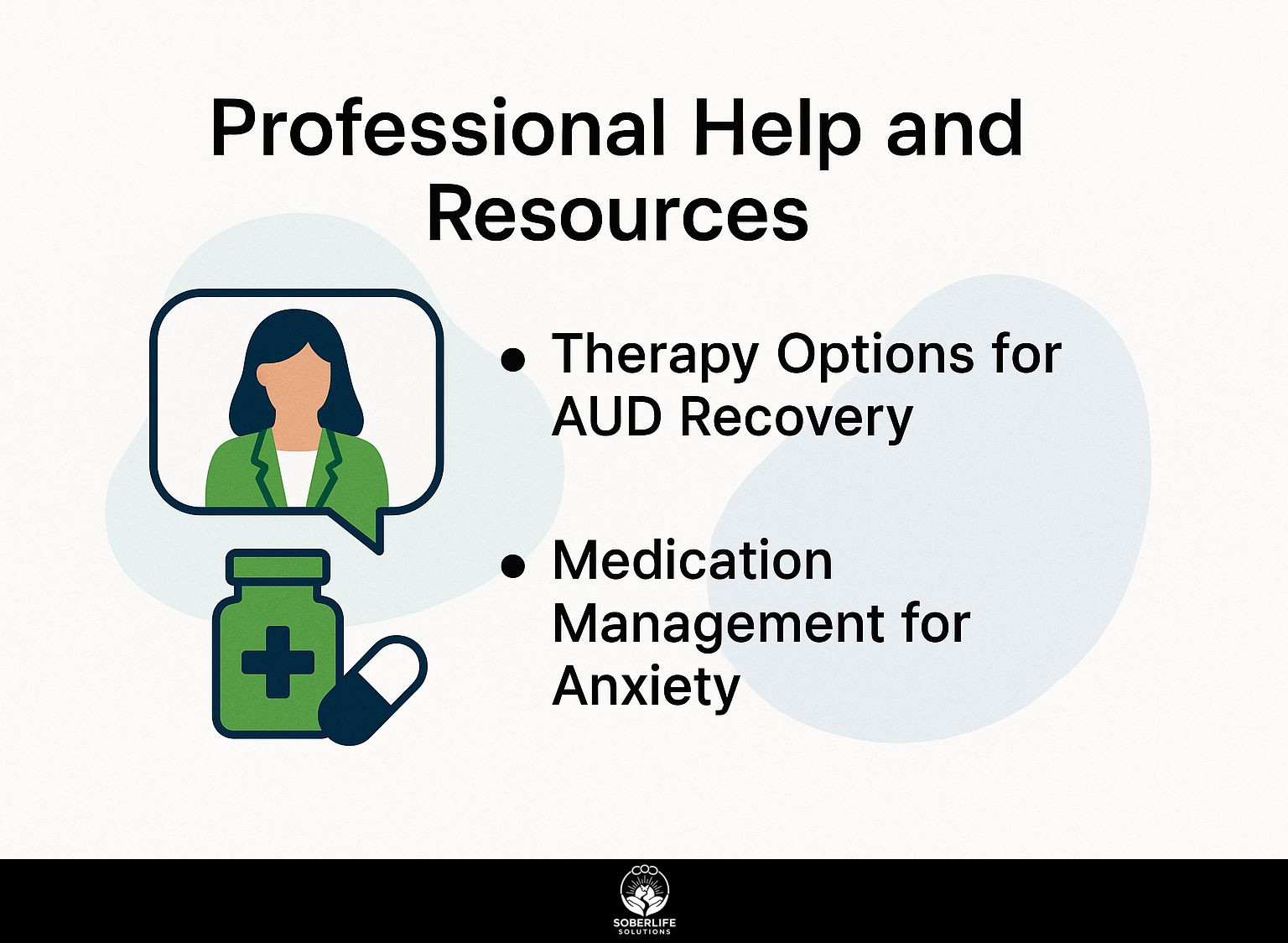
Getting help from professionals, like therapists and doctors, is important for dealing with both alcohol use disorder and related anxiety. They provide treatment plans specific to each person.
Therapy Options for AUD Recovery
Various therapy options, including individual counseling and group therapy, are effective in addressing both AUD and anxiety-related issues.
Three effective therapy methods to consider for AUD recovery are:
- Cognitive Behavioral Therapy (CBT)
- Motivational Enhancement Therapy (MET)
- Dialectical Behavior Therapy (DBT)
CBT helps individuals identify and change negative thought patterns related to alcohol use, promoting healthier coping strategies. MET focuses on enhancing motivation to change behaviors by exploring personal goals and values. DBT uses mindfulness and emotional control methods, helping people who also have anxiety.
When looking for a qualified provider, find licensed professionals with experience in these specific therapies, and think about checking local treatment directories or online platforms like Psychology Today.
Medication Management for Anxiety
Medication management for anxiety disorders plays a significant role in AUD recovery, with options like naltrexone showing promise in clinical settings.
Along with naltrexone, other common medications include selective serotonin reuptake inhibitors (SSRIs) like sertraline, which can help reduce anxiety symptoms by increasing serotonin levels. Another option is buspirone, known for its lower risk of dependency.
It’s important to talk to a doctor before taking any medicine. Discuss your symptoms, any prior experiences with medications, and potential side effects. This collaboration will help tailor an effective treatment plan that considers both anxiety management and alcohol use disorder recovery.
Developing Healthy Coping Mechanisms
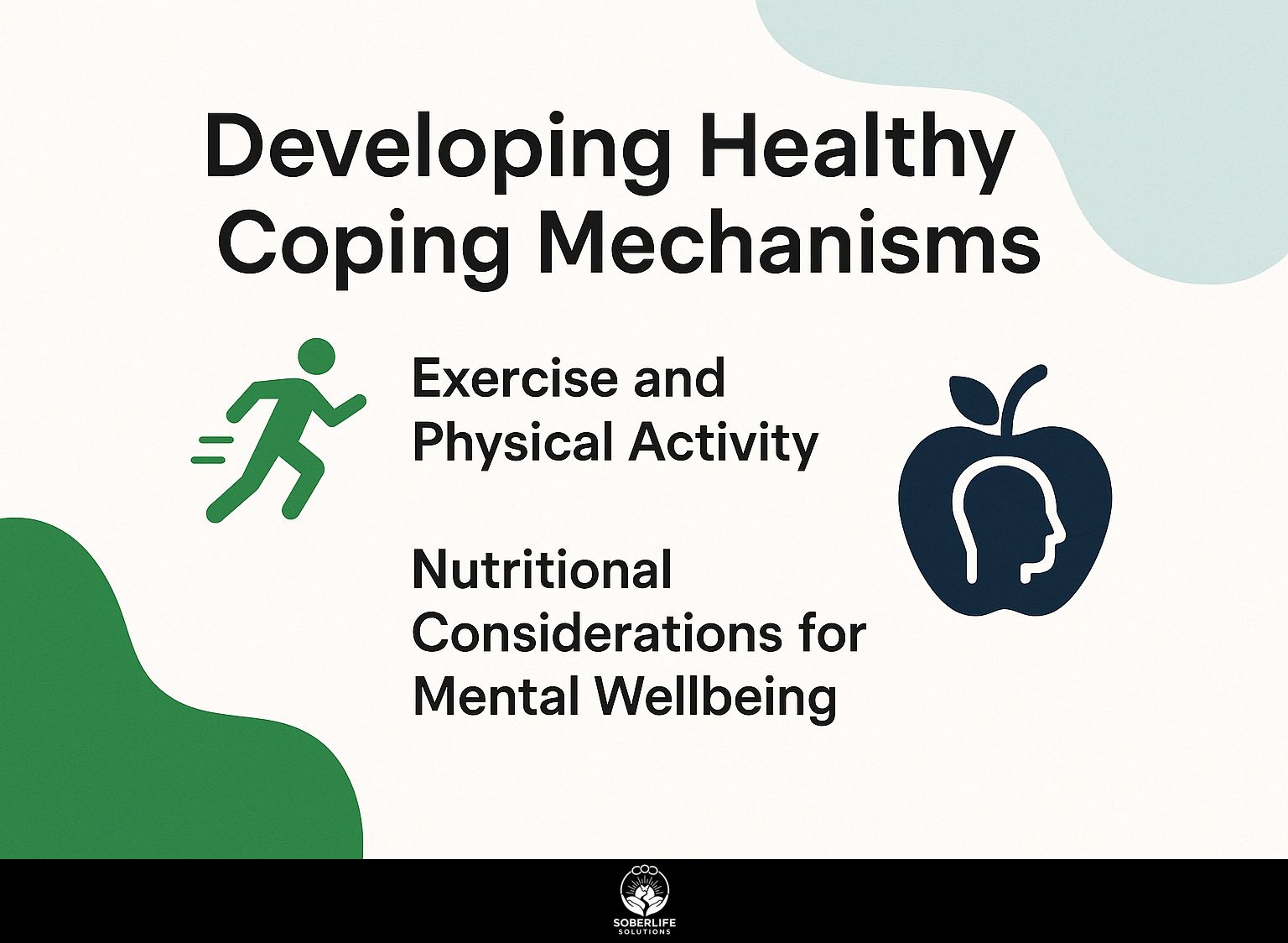
It’s important to create healthy ways to deal with anxiety and stay sober, paying attention to both body and mind health. To do this effectively, consider understanding how to build coping skills with effective strategies for recovery.
Exercise and Physical Activity
Regular exercise can greatly improve mental health and is an effective way to handle anxiety during AUD recovery.
Aerobic exercises, such as brisk walking or cycling, increase the production of endorphins, which can help alleviate anxiety. Yoga uses mindfulness and deep breathing methods to lower stress.
To start an exercise regimen, set small, attainable goals; aim for 30 minutes of activity three times a week. Research indicates that individuals who combine aerobic exercise with yoga experience a more pronounced reduction in anxiety levels.
Consider using apps like:
- MyFitnessPal for tracking exercise and progress
- Insight Timer provides yoga classes with guidance to help lower stress levels.
Nutritional Considerations for Mental Wellbeing
Eating habits are very important for mental health. Some changes in diet can help reduce anxiety and improve recovery from AUD.
Incorporating omega-3 fatty acids is essential; fatty fish like salmon or walnuts can be great sources.
Go for whole foods, including lots of fruits and vegetables, which give important nutrients and antioxidants that help improve brain health.
Think about organizing your meals to make healthier eating easier-choose one day each week to get meals or snacks ready ahead of time.
Talking to a nutritionist can give you specific guidance, and apps like MyFitnessPal can help you track what you eat.
These changes lift spirits and can make people healthier and more resilient.
Maintaining Long-Term Wellbeing
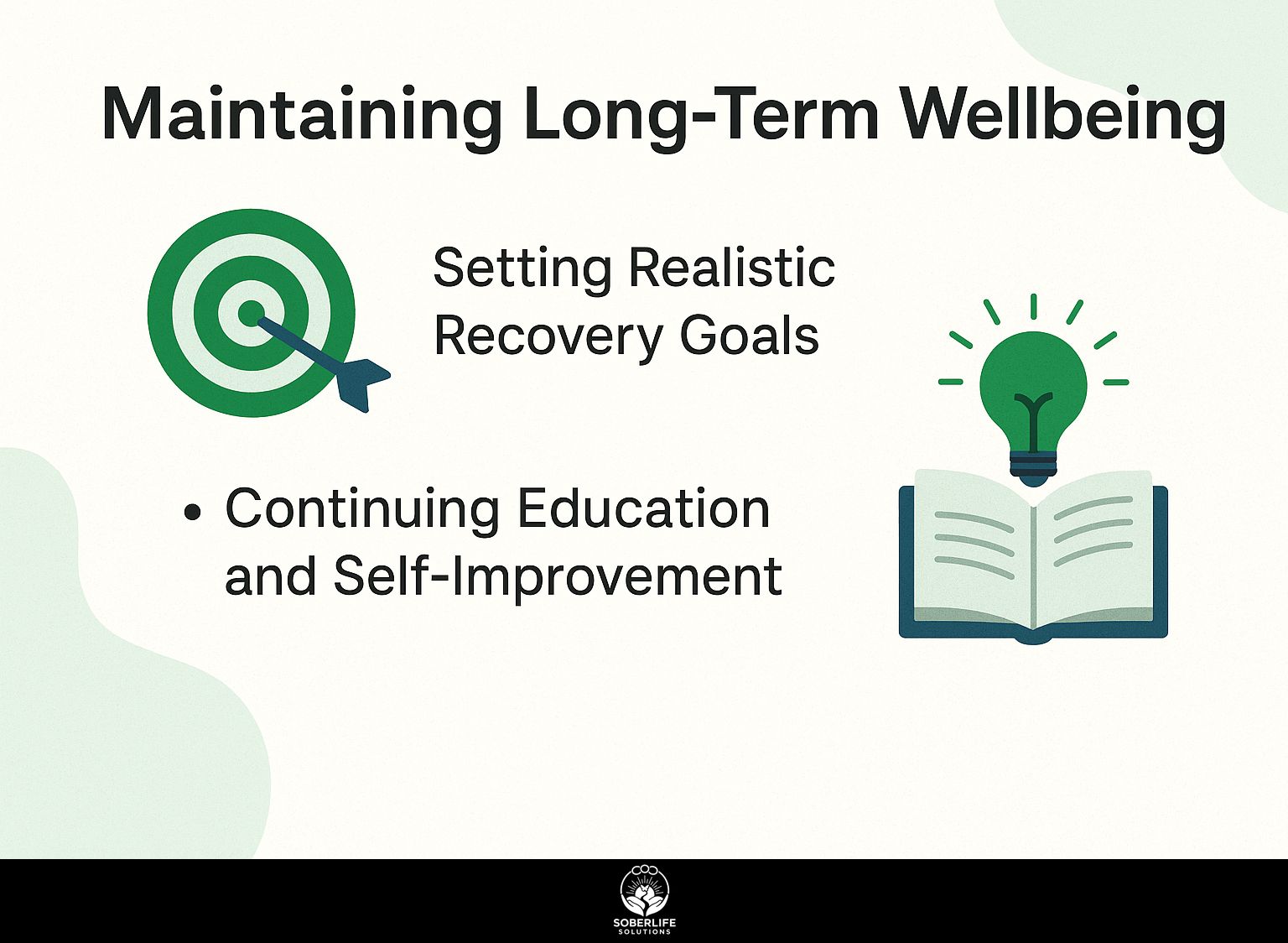
Staying healthy in the long run during AUD recovery needs continuous dedication to self-improvement and setting achievable goals.
Setting Realistic Recovery Goals
Setting realistic recovery goals can promote sustained motivation and a clear path toward achieving sobriety.
To manage AUD effectively, begin by setting specific and clear goals. For example, a person might plan to go to three AA meetings each week.
Measurable goals could include tracking sobriety duration; for example, aiming for 30 consecutive days without alcohol.
Make sure the goals are realistic by checking if they align with your present way of living or support system. Focus on goals that relate to your personal recovery, like fixing relationships affected by alcohol use.
Establish a time frame-set a review date in a month to assess progress and adjust as necessary.
Continuing Education and Self-Improvement
Ongoing learning and dedication to personal growth can help people in their path to recover from AUD and anxiety.
Attending workshops, taking online courses, and reading relevant books are great ways to learn more about alcohol use disorder (AUD) and mental health.
For example, sites like Coursera offer courses on coping strategies, while local community centers might host support groups and workshops. Books like “The Recovery Book” can give useful information.
Following a structured learning path increases knowledge and develops resilience, which is important for recovery.
Frequently Asked Questions
What is the connection between anxiety and AUD recovery?
There is a strong connection between anxiety and AUD (alcohol use disorder) recovery. Many individuals with AUD also struggle with anxiety, and it can be a trigger for relapse. Addressing anxiety is an important aspect of maintaining sobriety and overall wellbeing in AUD recovery.
How can I address anxiety in my AUD recovery?
There are various ways to address anxiety in AUD recovery, including therapy, medication, relaxation techniques, and healthy coping mechanisms. Find what suits you best and get help from an expert if necessary.
Is it normal to experience anxiety during AUD recovery?
Yes, it is normal to experience anxiety during AUD recovery. Recovery can bring up a lot of emotions and challenges, and anxiety is a common response to the changes and uncertainties in the process. It is important to have coping strategies in place to manage anxiety in a healthy way.
What is the role of self-care in addressing anxiety and promoting overall wellbeing in AUD recovery?
Looking after yourself is important for managing anxiety and improving general wellbeing during AUD recovery. Looking after your physical, mental, and emotional health can ease anxiety symptoms and make your recovery better.
Can practicing mindfulness help with anxiety and wellbeing in AUD recovery?
Yes, practicing mindfulness can be a helpful tool in managing anxiety and promoting overall wellbeing in AUD recovery. Mindfulness techniques can help individuals become more present and aware of their thoughts and emotions, leading to better coping strategies and emotional regulation.
Why is it important to address anxiety and wellbeing in AUD recovery?
Dealing with anxiety and supporting general health in alcohol use disorder recovery is important for staying sober and improving life quality. Ignoring anxiety can cause setbacks and slow down recovery, but focusing on health can result in a satisfying and effective recovery.

